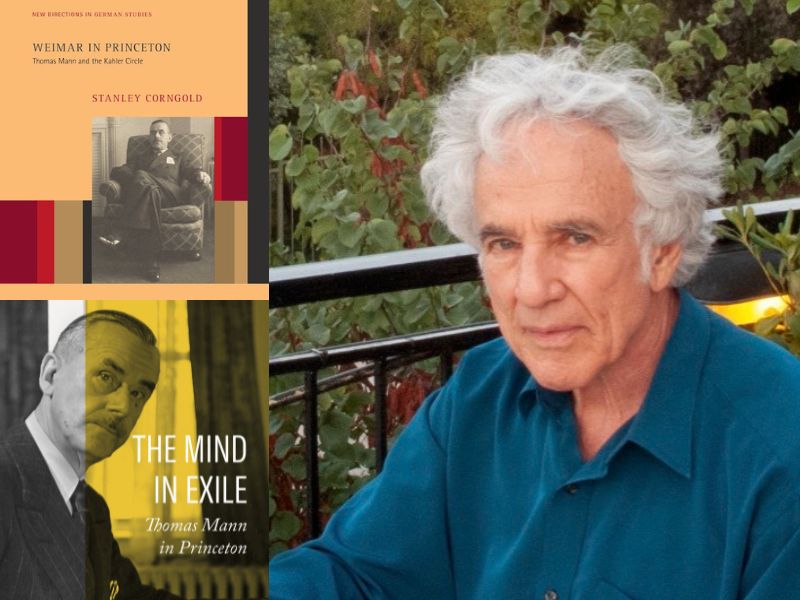Stanley Corngold is Professor Emeritus of German and Comparative Literature. His two books, “The Mind in Exile: Thomas Mann in Princeton,” and its companion “Weimar in Princeton: Thomas Mann and the Kahler Circle” were published in March 2022 and February 2022 by Princeton University Press and Bloomsbury, respectively.
How did you get the idea for this project?
In 2018 I was asked to lecture at the ETH (Zurich) as a Thomas Mann Lecturer on an aspect of his work that was alive today. I realized that Mann was being taught enthusiastically at a seminar in Comparative Literature and recalled too that Mann’s centenary had been celebrated at the University Library in 1975. I decided to explore Mann’s presence in Princeton more fully, aware, too, that he had become an articulate spokesman for the ideals of social democracy, a crucial matter today.
How has your project developed or changed throughout the research and writing process?
The project changed as I discovered that during Mann’s stay in Princeton (1938-1941), after having fled Europe and the risk of being assassinated by the Nazis, Mann was (in Hermann Broch’s phrase) “stupendously productive.” I then felt obligated to summarize and comment on each of the major articles and book chapters he published during that period. As I also intended to include an account of his rich interaction with other émigres in Princeton—above all, the historian Erich Kahler, the polymath novelist Hermann Broch, and (much less so) Einstein—I had burst the bounds of a single book. And so, I decided to publish a second shorter book titled “Weimar in Princeton,” devoted exclusively to Mann’s association with his fellow émigres, members of a burgeoning Kahler Circle.
What questions for future investigation has the project sparked?
This book has sparked a longer project, one that would really need to be done by an entire cohort of intellectual historians, describing the productions of the members of what came to be called, decisively, The Kahler Circle, among them Erwin Panofsky, Hetty Goldman, Ernst Kantorowicz, Kurt Gödel, Ben Shahn, … and Einstein solo.
Why should people read this book?
I think readers of this book would be surprised, enjoyably, to learn of Mann’s three-year stay in Princeton and profit from the wisdom of his political writings and the infinite charm of the fiction he wrote while living here.
Learn more about other publications by Princeton University faculty in the humanities by exploring our Faculty Bookshelf.
















